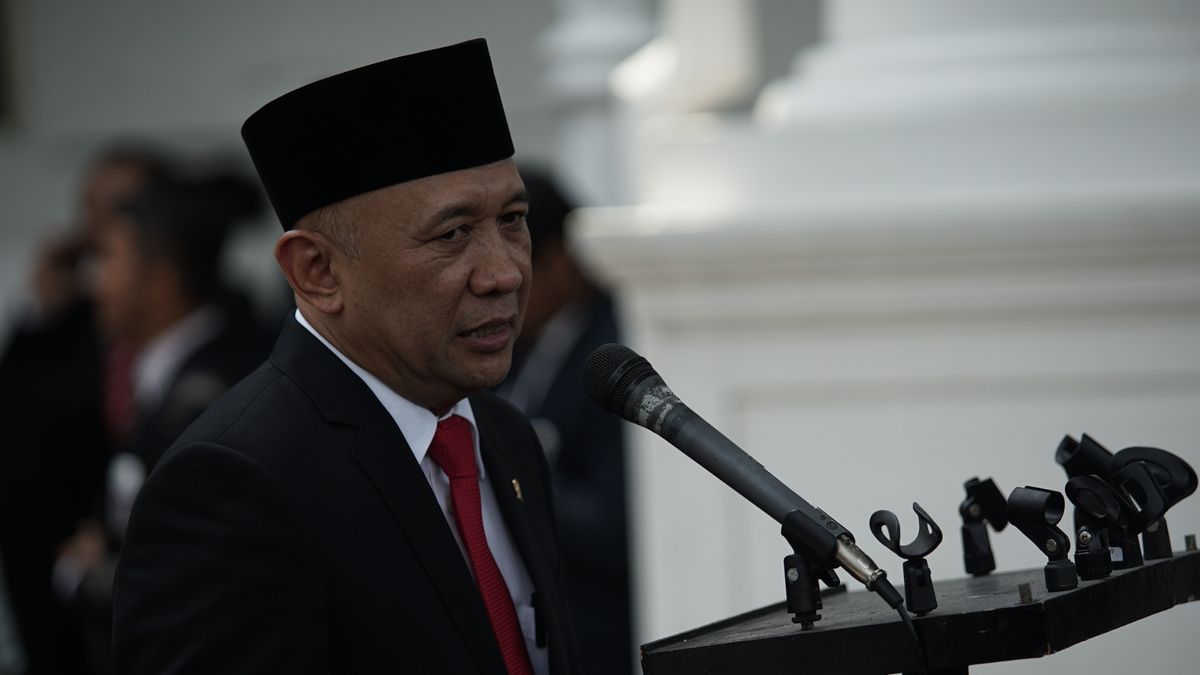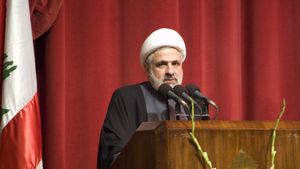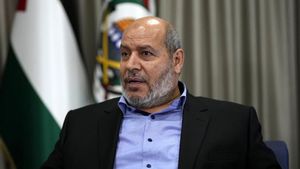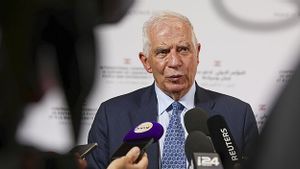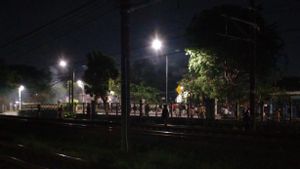JAKARTA - Minister of Cooperatives and SMEs, Teten Masduki, said that this year's physical and non-physical Special Allocation Funds (DAK) amounting to Rp200 billion will be used mostly for training and mentoring cooperatives and SMEs.
"The goal is to effectively prevent the transmission of COVID-19, it is hoped that the budget will be used for online training. Later, in detail, we will communicate the technical implementation with all service heads," said Teten, at a video conference with the topic Refocusing and Reallocation of the 2020 Regional Budget. with regional heads throughout Indonesia led by the Minister of Home Affairs, in Jakarta, yesterday, Friday 18 April.
Teten admitted, the outbreak of COVID-19 had an impact on MSMEs, especially for micro and small businesses. Therefore, there are three steps to anticipate this, according to President Jokowi's direction at the Cabinet Meeting last week.
First, MSMEs get loan relaxation, where there is a six-month delay in installments, reduced interest, and taxes. Teten emphasized that this policy is not only for recipients of KUR, the UMi program, ULAMM (Micro Capital Service Unit), MEKAAR (Fostering a Prosperous Family Economy) through PIP (Government Investment Center) under the Ministry of Finance.
"But, it also applies to savings and loan cooperatives, BPR (People's Credit Bank), and Sharia BPR. This is being proposed and discussed," explained Teten.
Second, the micro and ultra-micro sectors which have been really hit, apart from being able to relax, also need additional new financing. "Well, we will continue to implement two financing channels. First, through BLU under the Minister of Finance, through PNM, Bahana Ventura, Pegadaian, and also LPBD KUMKM," said Teten.
In addition, so that KUR can reach quickly and widely for this micro and ultra-micro business, Kemenkop and UKM will use various channels to distribute it. "Including now the easiest way is through Fintech," said Teten.
Third, ultra-micro programs that really cannot be completed through an economic mechanism will be included in the cash transfer program. "So, there is an expansion with the addition of new poor people from this ultra-micro sector," said Teten.
Technically the implementation, Teten emphasized, this must be done by collecting data, both by name by address and also by the NIK.
"We use data from KUR recipients, including loan recipients under Rp. 10 million through MEKAAR, PNM, BPR, BPRS, BMT, including through Fintech totaling 70 million," concluded the Minister of Cooperatives and UKM.
The English, Chinese, Japanese, Arabic, and French versions are automatically generated by the AI. So there may still be inaccuracies in translating, please always see Indonesian as our main language. (system supported by DigitalSiber.id)
